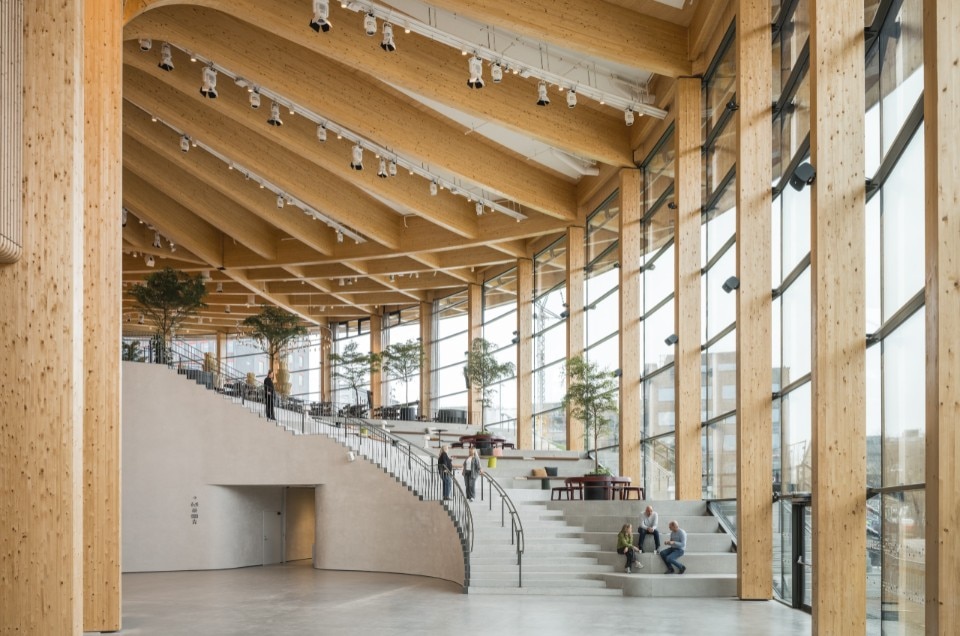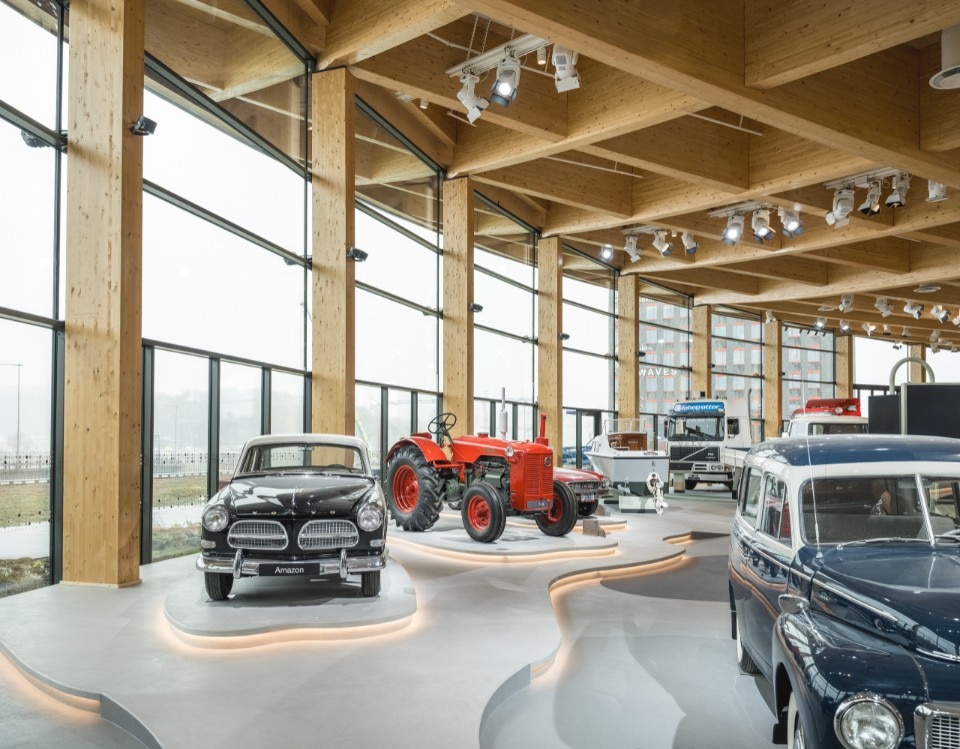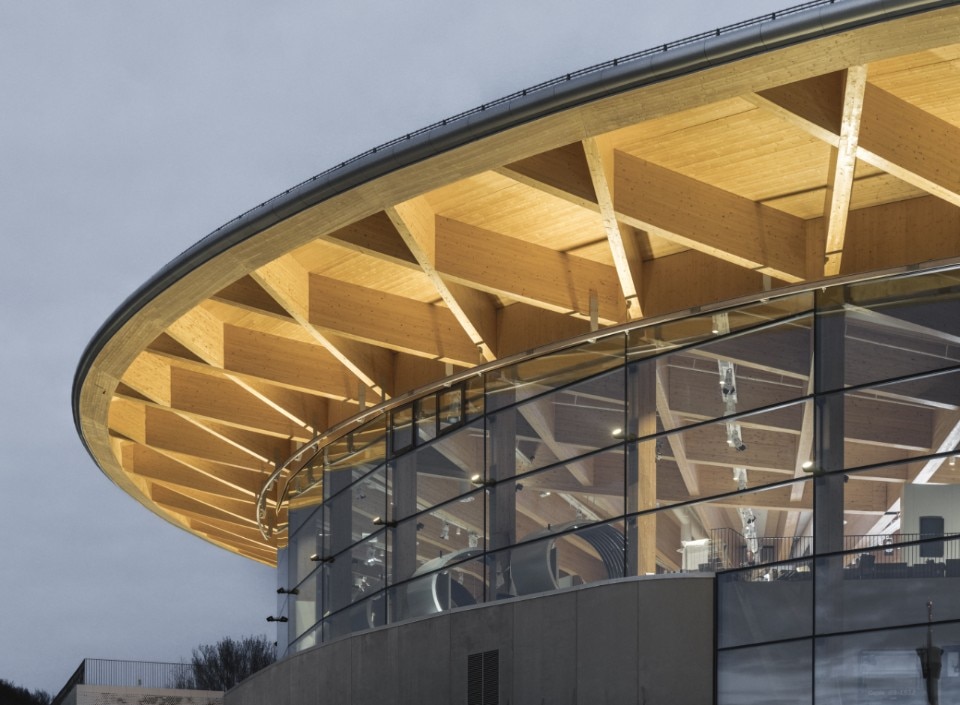The motorway leading from Gothenburg Landvetter Airport towards the city centre winds its way past a sequence of lakes and endless pine forests dotted here and there with a few falun-red farms –a leitmotif of the Scandinavian landscape – before turning onto the ring road embracing and surrounding Sweden’s second largest urban centre. Gothenburg is a city with a long industrial and port history behind it, the Swedish motor town where Volvo, the country’s leading car manufacturer, was born in 1927.
The new building, designed according to the Swedish principle of allemansrätten, the right of public access for everyone, offers ample space for visitors to freely enjoy a museum that dialogues with the city.

The idea of a large exhibition space to tell the company’s story began in 2017 when the decision came to decommission the old Volvo Museum in Arendal Skans, opened in 1995 in the industrial suburb northwest of the city centre. In autumn 2018, an invitational competition was organized, with Danish firm Henning Larsen Architects – named after its founder (1925-2013) – resulting as the winner.
Located in the heart of the Johanneberg district, the spaces are intended to host cultural events, conferences and conventions, with a maximum capacity of more than a thousand people. The 4,500 square metre exhibition space offers a comprehensive journey through the history, innovations and visions that have characterized the history of the Swedish automobile.

The new building, designed according to the Swedish principle of allemansrätten, the right of public access for everyone, offers ample space for visitors to freely enjoy a museum that dialogues with the city. Gothenburg and Volvo live in a dialectical relationship that has lasted for almost a century: some 35,000 people work for Volvo and more than 100,000 are indirectly involved in the automotive industry in the county of Västra Götaland. “Our aim was to shape something very essential to the Swedish spirit. The circular shape of World of Volvo, the materiality of the wood, its integration with the landscape and its openness – these are all part of a fundamental collective identity”, has therefore declared Martin Stenberg Ringnér, creative director of Henning Larsen Architects.
The two-storey, circular building has a total area of 22,500 square metres. The main structure, made of cross-laminated timber, forms three imposing and striking columns similar to tree trunks containing the service cores, which fan out to support the entire load of the convex roof, enveloping visitors in a welcoming space reminiscent of a forest.

Our aim was to shape something very essential to the Swedish spirit. The circular shape of World of Volvo, the materiality of the wood, its integration with the landscape and its openness – these are all part of a fundamental collective identity.
Martin Stenberg Ringnér, creative director of Henning Larsen Architects
The interior is visually connected to the exterior through the circular curtain wall that offers a feeling of continuity and mimesis with the surrounding park. The circular shape and the lozenge-shaped framework of the exposed wooden roof recall the influence of Pier Luigi Nervi’s (1891-1979) structural research, which combines well with the building elements of the Nordic tradition. Scandinavian values of closeness to nature, openness and inclusiveness also find their place in the project, whose organic form, a recurring element in the surrounding natural landscape, takes us back to the journey through lakes, forests and farms made to reach Gothenburg.




















